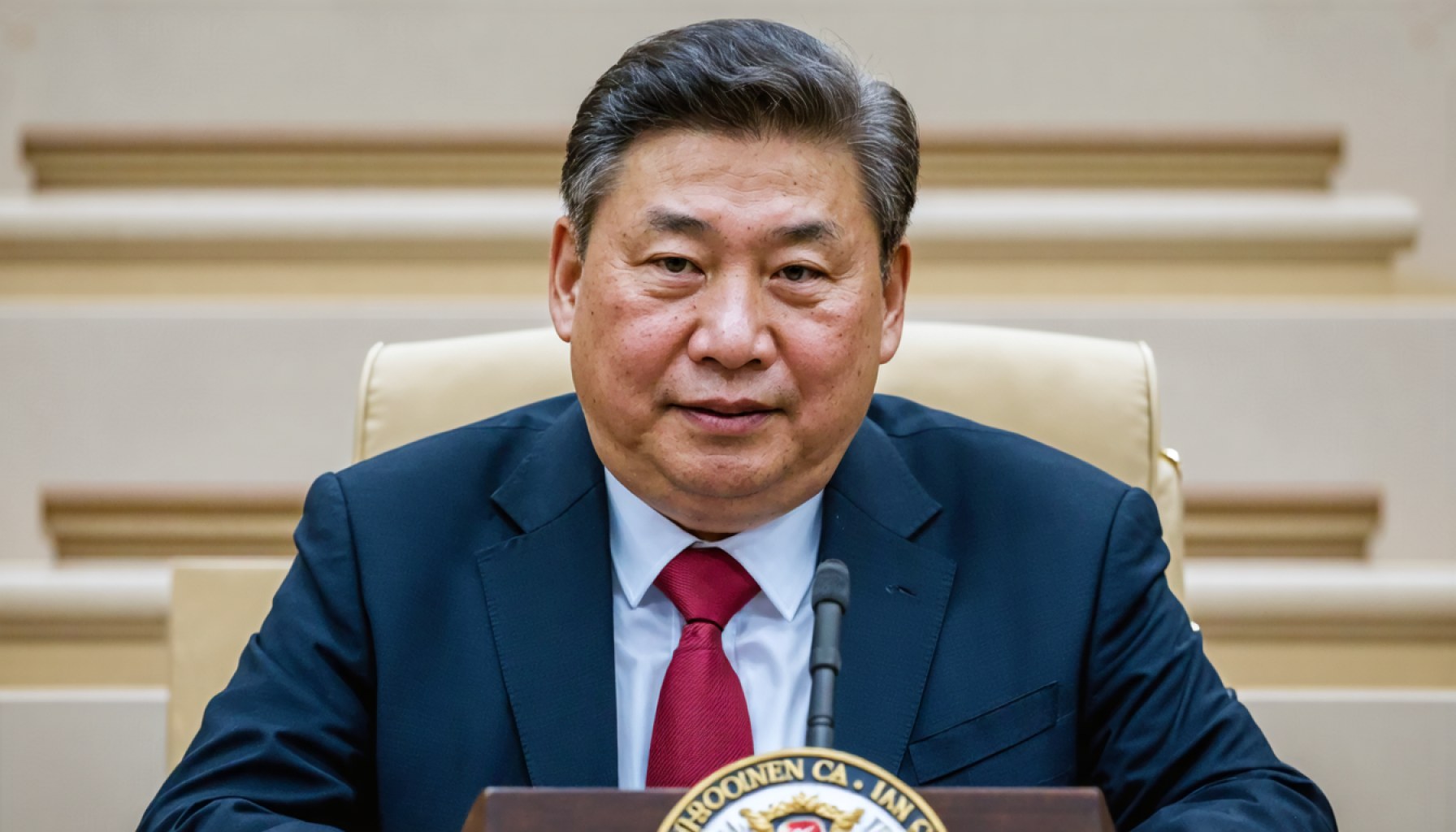- Jiang Chaoliang, a prominent Chinese politician, is under serious disciplinary scrutiny affecting his career trajectory.
- Jiang has held significant roles, including Governor of Jilin Province and Secretary of the Hubei Provincial Committee.
- The Central Commission for Discipline Inspection is investigating potential serious violations, impacting his political standing.
- This investigation highlights the Chinese government’s focus on upholding discipline and integrity within its ranks.
- The situation emphasizes that no political position is immune to accountability and reinforces the commitment to eradicate corruption.
- The outcome of the probe may influence Jiang’s future and underline the importance of transparency and ethical governance in China.
An air of uncertainty ripples through political circles as news emerges of Jiang Chaoliang, a significant figure in China’s governmental framework, facing serious disciplinary scrutiny. Jiang, who has held venerated roles such as the Governor of Jilin Province and the Secretary of the Hubei Provincial Committee, now finds his career path at a crossroads.
The breath of winter is tangible, not just in the chill of February but in the solemn corridors of power where Jiang’s name once commanded respect. Born in August 1957, Jiang’s rise to the position of Deputy Director within the National People’s Congress Agriculture and Rural Affairs Committee seemed emblematic of a career shaped by steady ambition and strategic acumen.
Yet, the black and white announcement from the Central Commission for Discipline Inspection and the National Supervisory Commission spiraled his journey into an unexpected detour. This investigation delves into potential serious violations, casting a shadow over his extensive political repertoire.
Beyond personal ramifications lies a broader narrative: the continual vigilance within China’s political landscape to uphold discipline and integrity. The reverberations of this investigation reach beyond Jiang himself, serving as a stark reminder of the shifting paradigms and the relentless pursuit to eradicate corruption and malpractice.
As investigations proceed, a key message crystallizes—integrity remains the cornerstone of leadership, and no position offers sanctuary from accountability. The outcomes of this probe may not only redefine Jiang’s future but also reaffirm an ongoing commitment to political transparency and ethical governance in China.
Unraveling China’s Political Dynamics: Jiang Chaoliang’s Disciplinary Scrutiny Explained
Understanding the Context of Jiang Chaoliang’s Investigation
The recent development revolving around Jiang Chaoliang, a prominent figure in China’s government, has unleashed a wave of speculation and analysis concerning the country’s political climate and governance. Jiang, who has held high-profile positions, including the Governor of Jilin Province and Secretary of the Hubei Provincial Committee, now faces serious disciplinary actions that could significantly alter his political journey.
This article aims to explore the implications of Jiang Chaoliang’s investigation, unpack its broader impact on Chinese politics, and provide insights into China’s systemic approach to maintaining discipline within its governance structures.
How-To Steps & Life Hacks
Navigating Political Pressures:
1. Understand the Historical Context: Familiarize yourself with China’s political history of governance and anti-corruption drives. Organizations like the Central Commission for Discipline Inspection play a crucial role in this.
2. Stay Informed: Follow reputable news sources and think tanks specializing in Chinese politics for real-time updates.
3. Adopt Integrity Principles: Whether in public service or corporate leadership, transparency and ethical practices must be prioritized.
Real-World Use Cases
This case highlights the broader efforts within China’s political system to maintain disciplined governance. Similar investigations have been launched against other officials, signaling an ongoing intensive scrutiny to curb corruption and instill integrity.
Market Forecasts & Industry Trends
In China, anti-corruption measures have substantial implications for business and governance. The rise in investigations suggests potential shifts in economic policies, investment climates, and how business is conducted. For businesses, aligning with ethical practices becomes essential to mitigate risks.
Reviews & Comparisons
Over the decades, China has seen multiple high-level investigations into political figures. The severity and frequency of these cases underscore a unique, unwavering commitment to political governance that differentiates China from many Western political systems.
Controversies & Limitations
Critics argue that such investigations, while necessary for accountability, may sometimes reflect internal power struggles. Others caution that they could lead to disruptions in governance continuity.
Features, Specs & Pricing
– Feature: Political accountability structures
– Spec: Investigative capabilities of the Central Commission for Discipline Inspection
– Cost: Potential economic fluctuations as markets react to political instability
Security & Sustainability
The crackdown on corruption fortifies political security and boosts confidence in governance systems. Long-term sustainability requires balancing scrutiny with ensuring procedural fairness and transparency.
Insights & Predictions
Expect increased momentum toward political transparency in China. Future initiatives will likely focus on further entrenching integrity within local governance and economic practices.
Pros & Cons Overview
Pros:
– Reinforces political accountability
– Encourages ethical governance
Cons:
– Could create governance instability
– May concern investors and partner nations
Actionable Recommendations
– For Individuals: Adopt clear ethical guidelines in professional and personal conduct.
– For Businesses: Align operations with local regulations and ethical standards.
– For Observers and Analysts: Track developments from credible sources for insights into potential political shifts.
Quick Tips
– Stay updated: Plug into verified news sources for developments.
– Embrace transparency: Engage in open communication to build trust and integrity.
– Enhance adaptability: Prepare for policy shifts that may arise from such high-profile investigations.
For more on global political dynamics, visit the BBC or The New York Times.
